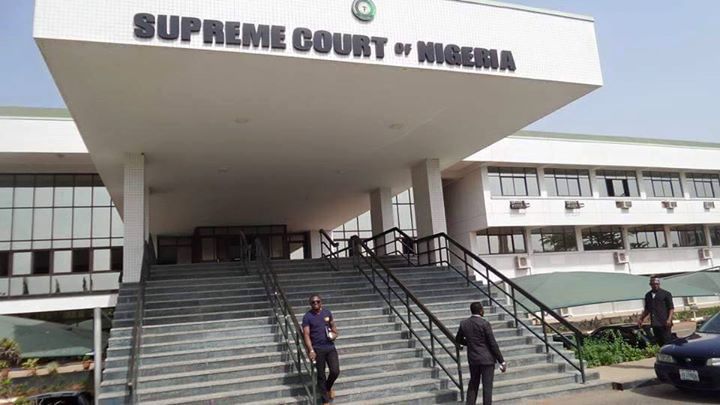The foremost function of the judiciary anywhere in the world is to give justice to the people whenever and wherever they may approach it. Yet, one of the worse things, if not the worst, that could happen to people seeking fair-hearing is to be denied justice even in its most trivial form. The easiest way, perhaps, to deny people justice is to simply delay it, consciously or otherwise. Given the constitutional role of the Supreme Court in the administration of justice in Nigeria, the nastiest dis-service of government to its citizens would be its failure, for whatever reason, to appoint the required number of justices for the apex court as provided for in the constitution.
Speaking in September 2022 at a valedictory ceremony in honour of a retired Justice of the Supreme Court, Abdu Aboki, the Chief Justice of Nigeria (CJN) then in an acting capacity, Olukayode Ariwoola, said the depletion of the number of judges on the Supreme Court’s bench burdens the apex court as 6,884 cases continue to gather dust in the court’s docket. Justice Aboki had retired from the court on August 5, 2022 after clocking the mandatory retirement age of 70. With Justice Aboki’s exit, the number of judges on the Supreme Court bench dropped to 13; falling short, by eight, of the 21 judges the Nigerian constitution provides as the full complement of the court’s bench. Section 230(2a & b) of the country’s 1999 constitution provides that “The Supreme Court of Nigeria shall consist of the Chief Justice of Nigeria, and such number of Justices of the Supreme Court, not exceeding twenty-one, as may be prescribed by an Act of the National Assembly”.
Recalling that the number of justices plummeted from 17 at the beginning of 2022, CJN Ariwoola lamented that “a single drop in the number of justices here brings about a sudden increase in our workload.” The shortage of justices at the apex court posed a great risk to the ability and capacity of the few remaining justices to handle the suits before them. Besides the impact, which excess workload has on the output of the existing justices, miscarriage and delays in the administration of justice exposes judges to corruption.
According to legal experts, “A sense of confidence in our courts is essential to maintain the fabric of ordered liberty for a free people”. One of the critical things that could destroy people’s confidence in the judiciary is when they come to believe that the law, in the larger sense, cannot fulfill its primary function to protect their rights. It is worse when people who have been exploited in smaller transactions of daily life come to believe that courts cannot preserve their legitimate rights against any form of injustice.
Even with a full house of 21 justices, the Supreme Court has never had it easy to cope with the number of cases that came before it probably because, in Nigeria, almost all cases from the magistrate and high courts end up at the apex court. Decrying the litigious nature of Nigerians as accounting for the huge ratio of cases and the judges, Ariwoola said, “We have various alternative dispute resolution mechanisms across the country we can conveniently leverage on, with a view to freeing the courts of this incessant case-overload. In every little disagreement, we rush to court, and in every lost case, we rush to appeal, even up to the Supreme Court, no matter how little the issue might be. That has obviously accounted for the several appeals pending in the Supreme Court”.
The need to, as a matter of urgent national assignment, fill the Supreme Court vacancies is further justified with the approach of the 2023 general elections from which litigations are bound to come up. Political cases are usually time-bound under the 1999 Constitution and Electoral Act. For example, some cases ‘die’ once they are not decided within 180 days from the lowest courts to the apex court. Since such constitutional provisions cannot be elasticated, the Supreme Court justices are compelled to stretch themselves to decide on political cases.
As a Constitutional Court, the Supreme Court should be provided with all it requires to function as the country’s apex court where justice is neither delayed nor denied. While we urge the federal government to implement past committee recommendations for special courts to expeditiously handle criminal and corruption cases, Daily Trust calls on President Muhammadu Buhari; the National Judicial Council (NJC); Chief Justice of Nigeria (CJN), Justice Olukayode Ariwoola, and the Federal Judicial Service Commission (FJSC) to individually expedite action on the process of appointing qualified persons to fill the eight Supreme Court vacancies.
There is also an urgent need to encourage Nigerians to explore alternative dispute resolution mechanisms to ensure that not every dispute ends up in a court with a possibility of further overburdening the formal judicial process.




